#peace education
Explore tagged Tumblr posts
Text
Promoting multilingual education: Literacy for mutual understanding and peace’.
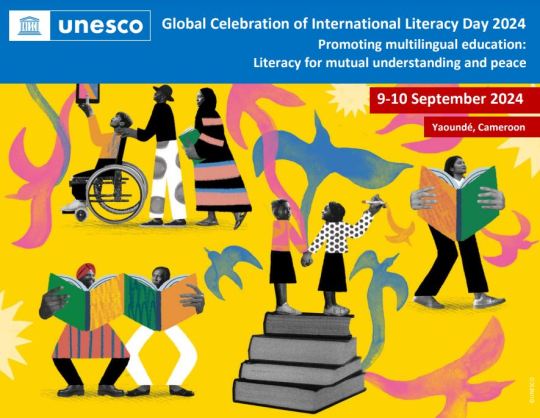
The International Literacy Day (ILD) 2024 is being celebrated under the theme of ‘Promoting multilingual education: Literacy for mutual understanding and peace’. Conflicts today threatens mutual understanding, harmonious co-existence, pluralism and peace, serving as a sharp reminder of the need to begin by constructing the defences of peace in the minds of people, in which literacy is central. Meanwhile, multilingualism is increasingly common in our world, in which approximately 7,000 living languages are unevenly spread across around 200 countries, with higher degrees of diversity in subSaharan Africa and Asia and the Pacific. This is due to a range of factors, including globalization, digitalization, and the increasing mobility of people. As recently as one decade ago, about two in three children grew up in a multilingual context. In 2022, the number of refugees, many of whom may need to master a host country’s language, reached 35 million, an increase of 8 million over 2021. More than 108.4 million people had been forcibly displaced due to persecution, conflict, violence or human rights violations, representing an increase of 19 million people over the previous year. Based on the current trend, the number of people who use more than one language in daily life could continue to grow in the coming decades. Meanwhile, about half of living languages are in danger of extinction by the end of the century. In 2021, 77% of communication in cyberspace was dominated by only 10 languages. Given that languages – oral, written, and sign languages – are not only essential tools for communication and knowledge management but also for embracing and preserving people’s identities, cultures, worldviews, and knowledge systems, conscious efforts are needed to use and preserve everyone’s first languages in daily life and in the public sphere. Globally, however, it is estimated that about 40% of the population does not have access to an education in a language they speak or understand. In Africa, 8 in 10 children learn in a language that is different from their first language, and the prospects of learning in one’s first language appear even slimmer for youth and adults, who may often be outside the formal education system. This not only hinders the acquisition of basic literacy skills, but also undermines linguistic and cultural diversity, creates epistemic and cultural hierarchies, and impacts social and economic development of individuals and communities, which could be detrimental to building inclusive, peaceful and sustainable societies.
#children's rights to read#rights to read#multilingual societies#fast language based multilingual (flb ml) approaches#literacy development#adult literacy#young literacy#raise your voice#peace education#basic writting skills#literacy skills
1 note
·
View note
Text
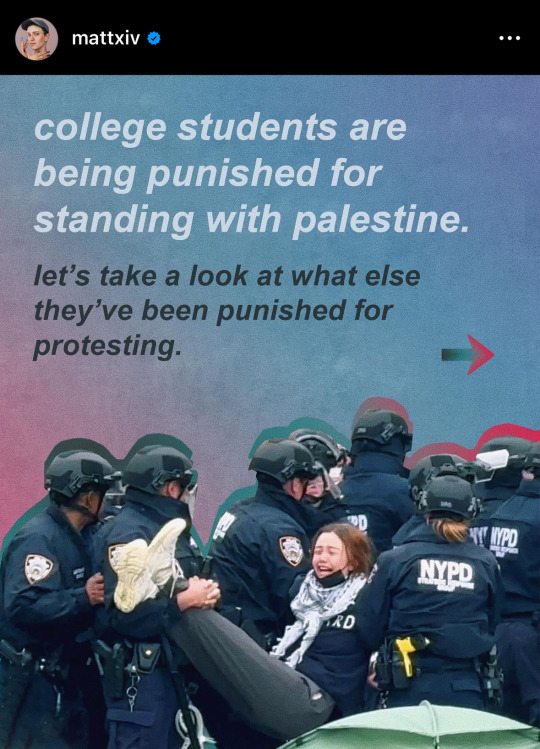
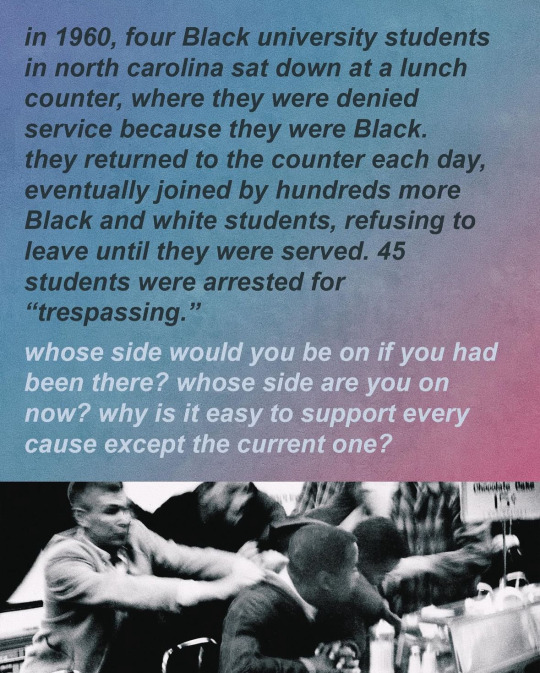
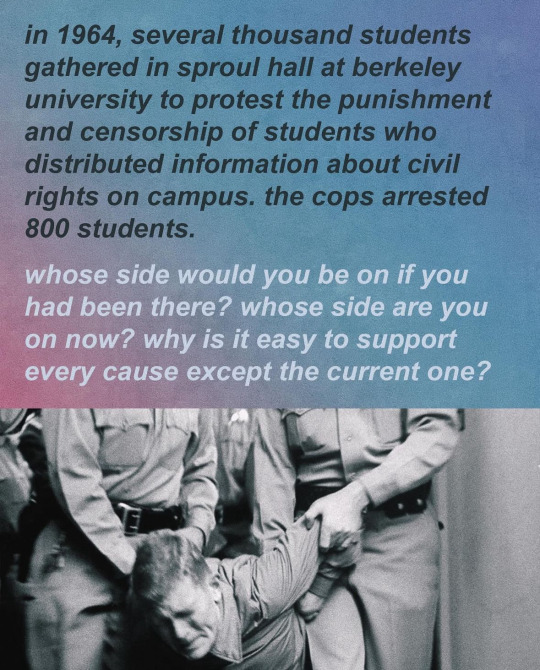
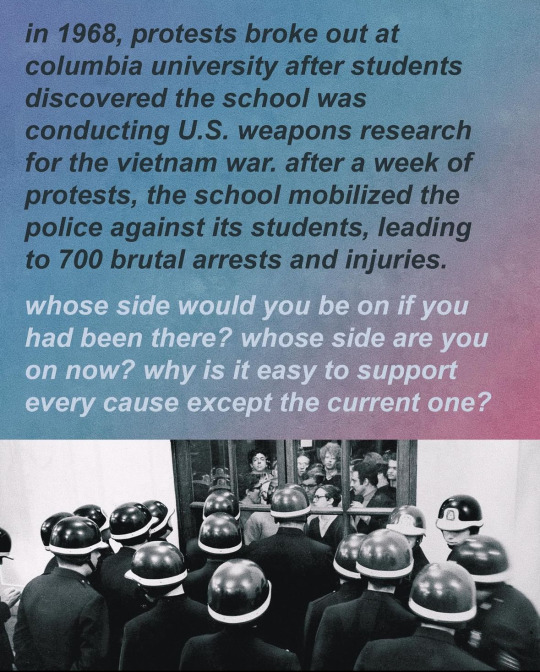
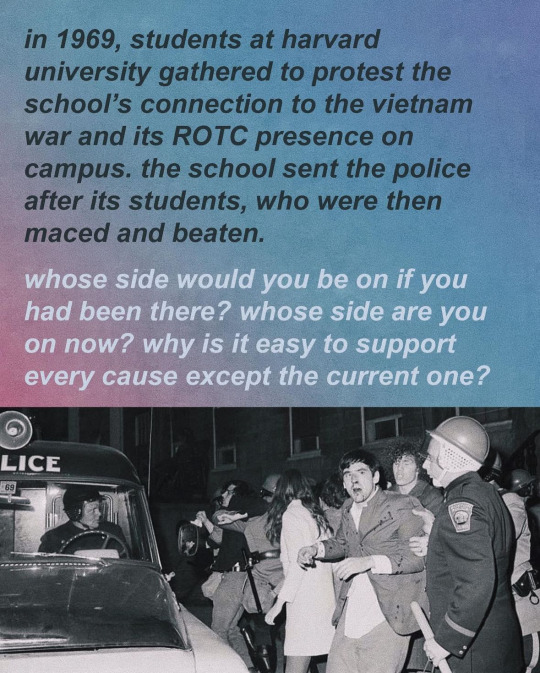
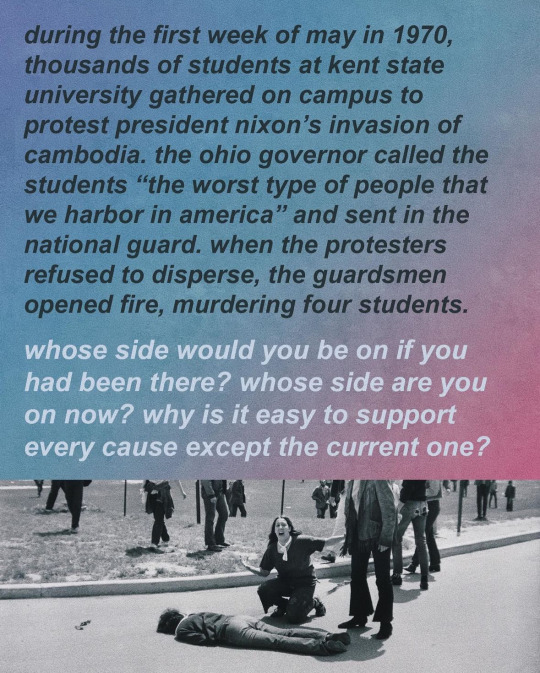
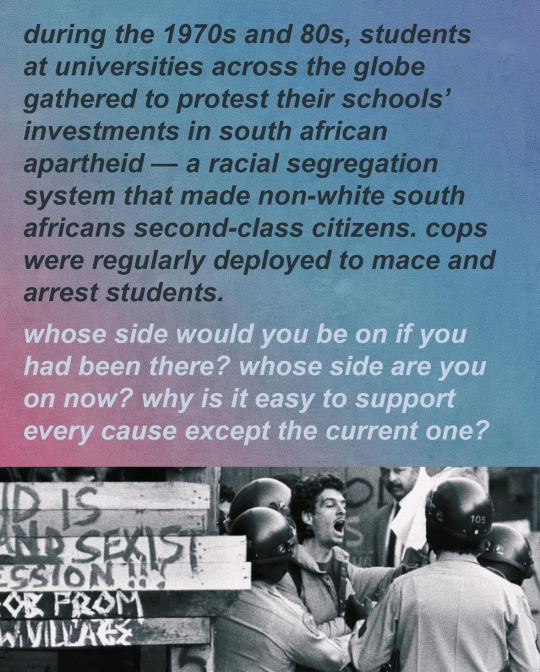
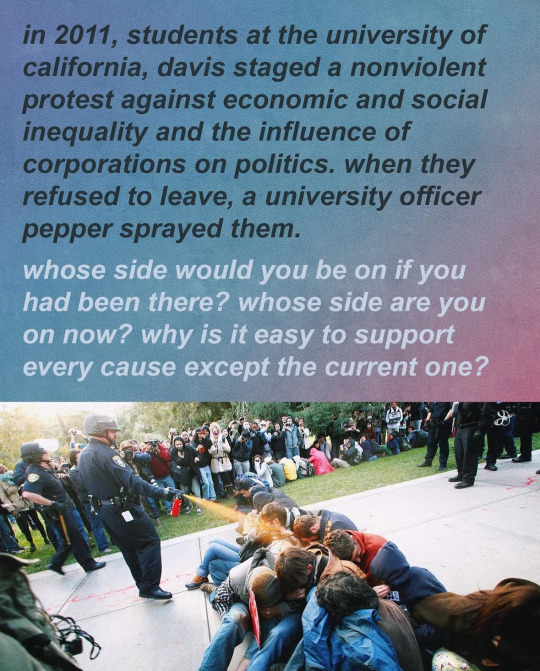
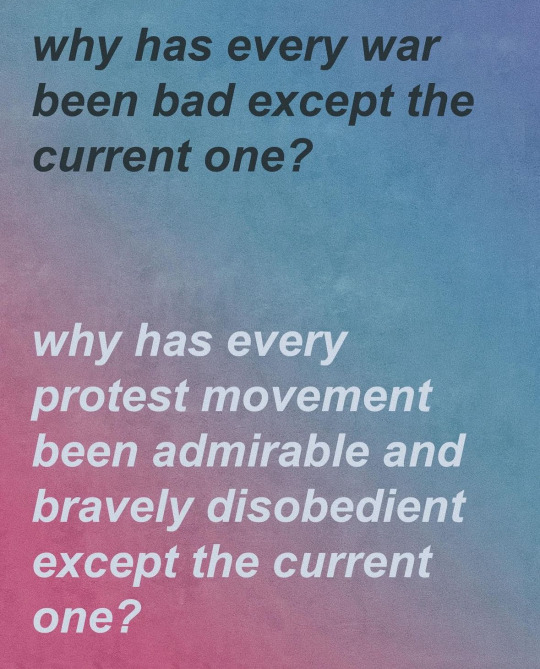
Source
#politics#us politics#government#the left#protest#progressive#activism#education#anti war#end all wars#teach peace#universities#news#current events
3K notes
·
View notes
Text
🚨🚨 DONT SKIP !! Urgent Appeal: Donations Needed Now! Verified✅️
Do you know why we need your support, dear friends?
To save the lives of two children.
To rebuild their shattered lives.
To help them evacuate Gaza if any border opens, where life has become unbearable.
To return them to school and give them the chance to chase their dreams.
These children were not born to endure such suffering.
For over 420 days, we have been searching daily for food and water for them, instead of opportunities for education and growth.
We seek warmth for them in this freezing weather as they take shelter in ruins, after losing their once warm and loving home.
Their home, school, and dreams have been destroyed, yet we still hold onto hope.
Yamen And Boody needs you as we, support is the only hope we have left.
➡️ Donations link:
🔗 https://gofund.me/0580344a
💔💔💔🇵🇸








✅️Our fundraiser ✅️
🔎 Vetted by :
@gazavetters #169 / @bilal-salah0
@timetravellingkitty @deathlonging @briarhips @mazzikns @mahoushojo @sar-soor @rhubarbspring @pcktknife @transmutationdice @sawasawako @appsa @anneemay-blog @commissions4aid-international @wellwaterhysteria @mangocheesecakes @kyra45-helping-others @turtletoria @tortiefrancis @ot3 @amygdalae @ankle-beez @communistchameleon @dykesbat @komsomolka @heritageposts @stuckinapril @lacecap @determinate-negation @deepspaceboytoy @paper-mario-wiki @kibumkim @neechees @chilewithcarnage @ghelgheli @sayruq @rooh-afza @shesnake @emiliemgg @stuckinapril @side-sidecast @brokenbackmountain @paper-mario-wiki @turtletoria @buttercuparry @littlegermanslavegirl-blog @imjustheretotrytohelp
#free gaza#free palestine#@gaza#@gaza evacuation funds#charity#human rights#humanity#justice#peace#save palestine#vetted#vetted fundraisers#palestine fundraiser#save gaza#mutual aid#palestine gofundme#important#education#future#dreams#from the river to the sea palestine will be free
1K notes
·
View notes
Text
Education for Peace: Shaping Future Generations in Eastern Europe’s Conflict Regions
by Emancip8 Project
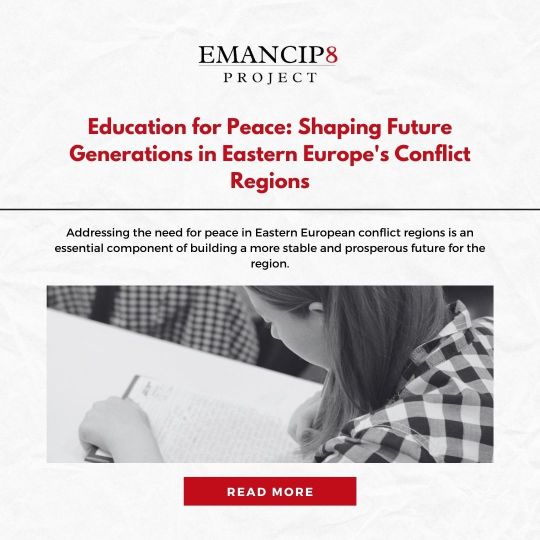
Addressing the need for peace in Eastern European conflict regions is an essential component of building a more stable and prosperous future for the region. One key strategy for achieving lasting peace is the promotion of peace education, which aims to nurture future generations with the skills, knowledge, and attitudes necessary to prevent and resolve conflicts. By focusing on the role of education in promoting peace and fostering reconciliation, this article explores the importance of peace education in Eastern European conflict regions, the challenges faced in implementing such programs, and the potential benefits they offer to society at large (Bajaj, 2008; Bush & Saltarelli, 2000).
The rationale for peace education is rooted in the understanding that education can be a powerful tool for both perpetuating and transforming societal norms and values. In conflict-affected regions, education systems often reproduce the divisions and grievances that fuel conflicts, thus perpetuating cycles of violence (Bekerman & Zembylas, 2011). By contrast, peace education seeks to counteract these negative influences by fostering critical thinking, empathy, nonviolent communication, and collaborative problem-solving among students (Fountain, 1999).
Implementing peace education in Eastern European conflict regions presents a range of challenges. The region’s diverse historical and cultural contexts require that peace education programs be contextually relevant and sensitive to the unique needs of each community. Additionally, the legacy of conflict often leaves educators and communities with limited resources and capacity to implement comprehensive peace education programs (Bekerman & Zembylas, 2011; Harris, 2004).
Despite these challenges, several promising initiatives have emerged in the region. For instance, in the Western Balkans, the “Schools for Peace” project has successfully integrated peace education into the formal curriculum of selected schools, providing teachers with training and support to promote dialogue and understanding among students from different ethnic backgrounds (Golubovic, 2010). Similarly, in the South Caucasus, a series of cross-border educational projects have brought together Armenian and Azerbaijani youth, fostering positive interactions and challenging stereotypes (Miske & de la Vega, 2009).
The potential benefits of peace education extend far beyond the classroom. By empowering young people with the skills and attitudes needed to prevent and resolve conflicts, peace education can contribute to the broader goal of building a culture of peace and social cohesion in Eastern European conflict regions (Bajaj, 2008; Lederach, 1997). Ultimately, investing in peace education is an investment in the region’s future, as it helps to create the conditions necessary for lasting peace and sustainable development (Fountain, 1999).
References:
Bajaj, M. (2008). Critical Peace Education. In Encyclopedia of Peace Education. Charlotte, NC: Information Age Publishing.
Bekerman, Z., & Zembylas, M. (2011). Teaching Contested Narratives: Identity, Memory and Reconciliation in Peace Education and Beyond. Cambridge: Cambridge University Press.
Bush, K. D., & Saltarelli, D. (2000). The Two Faces of Education in Ethnic Conflict: Towards a Peacebuilding Education for Children. Florence: UNICEF Innocenti Research Centre.
Fountain, S. (1999). Peace Education in UNICEF. Working Paper. New York: UNICEF.
Golubovic, S. (2010). Schools for Peace in Bosnia and Herzegovina: Evaluation Report. Sarajevo: Nansen Dialogue Centre.
Harris, I. (2004). Peace Education Theory. Journal of Peace Education, 1(1), 5–20.
Lederach, J. P. (1997). Building Peace: Sustainable Reconciliation in Divided Societies. Washington, D.C.: United States Institute of Peace Press.
Miske, S. J., & de la Vega, C. (2009). The Role of Cross-Border Educational Projects in Conflict Transformation: The Case of the South Caucasus. International Journal of Educational Development, 29(6), 607–617.
Read more at Emancip8 Project.
#Post-conflict schooling#Emancip8 Project#Peace education#Eastern Europe#Conflict resolution education#Peacebuilding in education#Education for reconciliation
0 notes
Text
A reddit update with a happy ending for women!
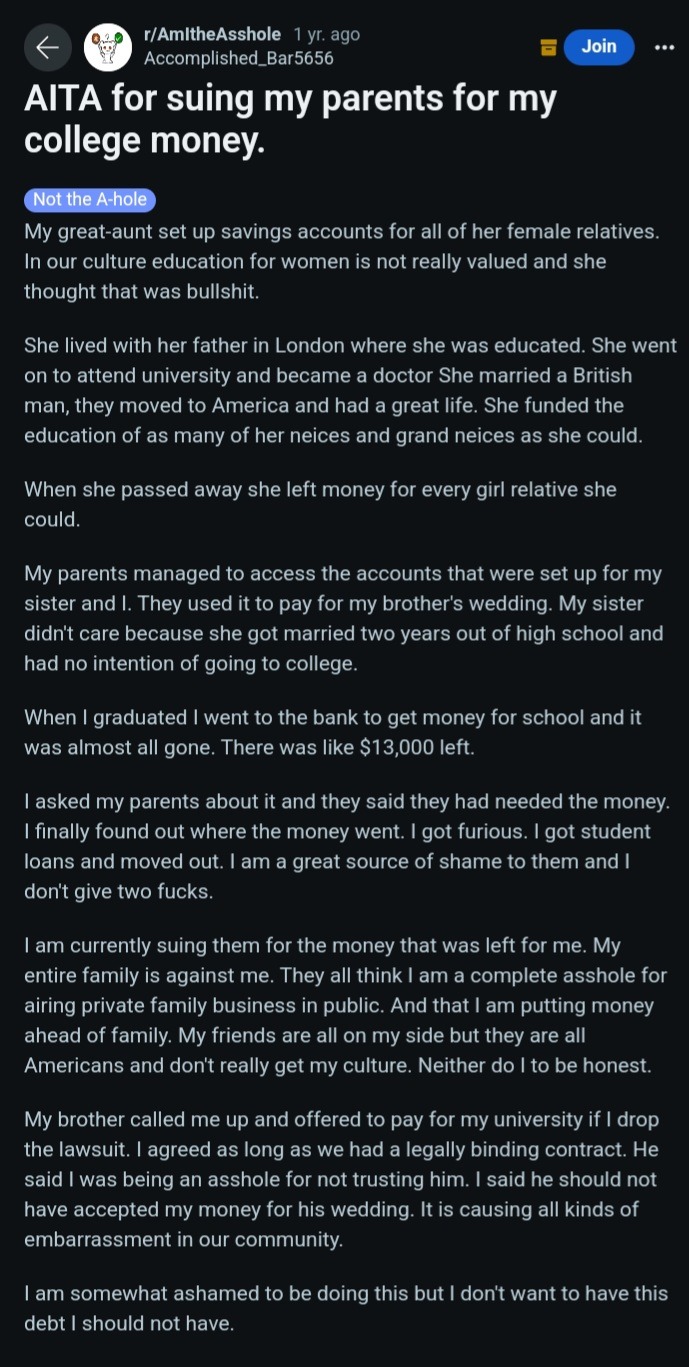

#Reddit#Aita#May her great aunt Rest In Peace#Only men could think the story was sexist by ignoring that the parents took from the daughter to give to the son#Good for the other women in her family taking steps to secure their education funds#The parents committed a crime and they should have been exposed
1K notes
·
View notes
Text
Peace begins with me.

Called “Peace begins with me” the poem pays tribute to the strength and resilience of communities affected by conflict as well as those who help them rebuild their lives and livelihoods. It is a reminder of our responsibility to promote peace in our communities, countries and across the world – a conviction that has driven more than two million men and women to serve in over 70 peacekeeping operations since 1948.
Young poets lend their talents to promote peace, marking the 75th anniversary of UN peacekeeping.
#young poets#75th anniversary#United Nations Peacekeepings#peace keepers#armed conflicts#peace education
0 notes
Text
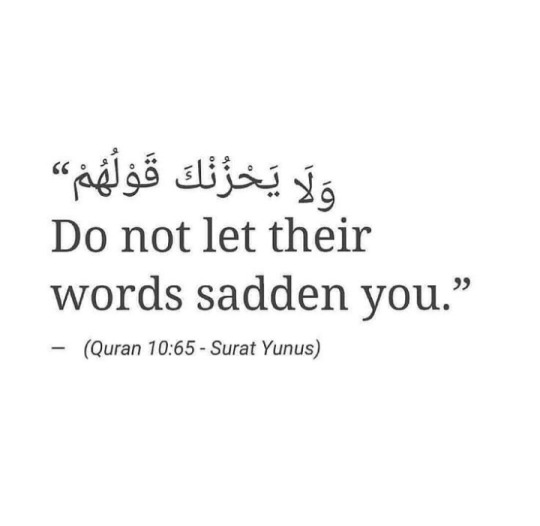
#islam#islamic#muslim#muslims#islamic reminders#muslim reminder#reminders#Allah#al quran#alquran#holy quran#quran#trending#explore#foryoupage#foryou#hadithoftheday#islamicquotes#hijab#islamdaily#education#muslimah#islamic life#dawah#trust#peace#happiness#usa#life#tahajjud
610 notes
·
View notes
Text
“Mystery creates wonder and wonder is the basis of man's desire to understand.” ― Neil Armstrong
#manchester#photography#nature photography#media#nature#uk#iraq#naturelover#iraqi#neil armstrong#nasawebb#nasa#astronomy#nature is amazing#mountains#landscape#trees#forest#nature lovers#uk news#artists on tumbr#writers on tumbr#mastodon#we are peace#education#schools#course#learning#higher education#solutions
717 notes
·
View notes
Text

#science#education#nature#photography#animal#landsccape#cute animals#funny#lol#adorable#landscape#paradise#travel#photographers on tumblr#gifs#gif#birds#beautiful#beauty#white#dove#columbidae#peace#symbol
566 notes
·
View notes
Text

#pay attention#educate yourselves#educate yourself#knowledge is power#reeducate yourself#reeducate yourselves#think about it#think for yourselves#think for yourself#do your homework#do your research#do your own research#do some research#spiritual ascension#ask yourself questions#question everything#spiritual transformation#spiritual awareness#spiritual enlightenment#peace#growth#be still
229 notes
·
View notes
Text
How can literacy be better promoted for fostering mutual understanding and peace in multilingual contexts, based on human rights principles and a lifelong learning perspective?

First, it is important to ensure that literacy is addressed appropriately in policy documents, such as national development strategies and policies regarding education, lifelong learning, and adult learning and education (ALE). The relevance of such policy frameworks can be improved by ensuring that they: (1) adopt a lifelong learning approach to literacy, perceiving literacy as a continuum of proficiency in reading, writing and numeracy; (2) are managed through inclusive and multistakeholder governance systems; (3) are backed up by political will, legal frameworks, appropriate systems and adequate financial resources; and (4) are translated into concrete strategies, programmes and practices responsive to leaners’ needs. Some countries have improved their policies, plans, systems and governance for literacy.
Some countries have improved their policies, plans, systems and governance for literacy focusing on literacy as well as vocational and basic skills. Up to 77% had developed and implemented policies on literacy and basic skills
A total of 60% of the 154 countries participating in the 2022 Global Report on Adult Learning and Education survey (GRALE 5) reported having improved their adult learning and education (ALE) policies, giving a strongand education (e.g. El Salvador and Malawi) as well as sector-wide and cross-sectoral frameworks and reforms (e.g. Uganda).
focus to literacy as well as vocational and basic skills.16 Up to 77% had developed and implemented policies on literacy and basic skills
#Global Report on Adult Learning and Education survey (GRALE)#basic writting skills#literacy skills#adult literacy#adult learning and education (ALE)#mutual understanding#peace education#multlingual education#8 september#multilingual societies#international literacy day#unesco#literacy
0 notes
Text
I feel a deep sense of anger and grief for Palestine. I’m angry at God, at the world powers donating to those who are killing civilians, angry at people looking away and encouraging you to worry about yourself when people can’t even walk down their streets without being attacked. I’m angry that my friend donated, only for it to be stolen and taken by the soldiers abusing Palestine. I’m angry that I can’t do much of anything but tell you to at least CARE about the people being bombed and slaughtered. Please, if you can’t do anything please just CARE about these people and listen to their stories. Hold them in your hearts at the very least. Don’t pretend they don’t exist or just brush it off as “its been going on for centuries, there’s no point in stopping it.” I want to do more, I want to make people care and love those who need it, rather than continue spreading anger and hate.

These are real people I’ve drawn. Keep the people of Palestine in your heart at the very least please.
#two of my best friends had to run away from their homes because they were Muslim#it was too dangerous for them to stay#but in leaving they also had to leave behind large parts of their families#they tell me about their friends and loved ones that have died and how empty they feel to it#that they also feel a deep sense of hopelessness and guilt at not being able to help#I have a friend now who teaches me about the qur’an and how it talks about having peace and not being afraid in times like these#so please DONT BE AFRAID TO SAY SOMETHING#Please talk about this with your friends#please educate yourself on what’s happening#please please please just CARE about the people of Palestine#even if it’s scary and even if it hurts you#do it for those who don’t have a choice to be afraid or hurt#free palestine#palestine
1K notes
·
View notes
Text
In Judaism, one alternative way of referring to converts is "Jews by Choice."
If a parallel term exists in Xtianity I am not aware of it, but I would like to propose that it really should exist, albeit not just in reference to converts but to all Xtians. Every Xtian should get the opportunity to fully understand their faith in context and to make an informed decision to choose it for themselves. As it stands, many Xtians are deeply ignorant about Jewish history (before and after the formation of Xtianity), the original cultural context for the stories in the Old Testament, the cultural Jewish context that Jesus existed and taught in, the critical historical (scholarly) read of these texts, what they probably meant to the Israelites who produced them, and what they mean to Jews today and how we read these same texts differently in our religious context.
This creates a problem, where Xtians are taught only the narrow band of context that their church deems it important for them to know, and even that is frequently inaccurate or so limited in scope as to make it inaccurate by omission.
And this is because the reality is that the Tanakh (that is, the Hebrew and Aramaic scriptures that the Old Testament is based on) does not naturally or inevitably lead to the Jesus narrative. If you are starting from a Xtian perspective, and especially if you read the New Testament first and then and only then dive into the Old Testament, the Jesus narrative is obvious to you because you are looking for it, expect to see it there, and are coming at these texts with that reading lens in mind. And it's not that you or anyone else is nuts to see that narrative there - there are plenty of solid Xtian reads of these texts that make sense if you already believe in Jesus as presented by the New Testament.
But what the vast majority of Xtians aren't taught is how to approach the Tanakh from a Jesus-neutral perspective, which would yield very different results.
Now you might fairly ask, why would they *need* to approach the Tanakh with a Jesus-neutral perspective? They're Xtians! Xtians believe in Jesus, that's what makes them Xtians!
My answer is multi-pronged: First, I believe that G-d wants a relationship with all people, and speaks to us in the voice we are most likely to hear. That's inherently going to look different for everyone. And that's okay! G-d is infinite, and each of our relationships with G-d are going to only capture the tiniest glimpse into that infinite Divine. Therefore, second, when approaching religion, everyone sees what they want to see. If you nothing religion but find your spirituality in nature, you're going to come at these biblical texts with that lens and take away from them similar things that one might take away from other cultural mythologies. If you, like me, are coming at these texts with a Jewish mindset, you are going to come away with a portrait of Hashem and our covenantal relationship as Am Yisrael. And, of course, if you read with a Xtian lens, you're going to see the precursor narratives leading up to Jesus. That reading bias is not only understandable but good or at least deeply human. Everyone sees what they want to see in these texts. There is no objective or flawless way to read them, and to claim that there is, is to claim that not only is there only one answer, but only one kind of relationship that G-d wants to have with people, that you personally happen to know what that is, and that everyone else is wrong. I am sorry, but if you believe that - if you truly think that you in particular (and/or the people you happen to agree with) know the mind of G-d, then you do not worship G-d. You worship yourselves, because to know the entirety of G-d would require you to be G-d. There's a term for that. That doesn't mean there aren't wrong answers too. But it does mean that there is no singular unimpeachable reading of the texts. What you see in these texts then, says far more about you than it does about the texts themselves or G-d.
So the question then becomes: Why do you want to see this? (Whatever your "this" is.) If your read of these texts is something you choose, why do you choose to see what you see? And is it a meaningful choice if you are not taught other ways of knowing, other perspectives on these texts, and to think critically while exploring them?
Judaism inherently teaches a multiplicity of opinions on the texts, and maintains that they can be read to mean different things, even at the same time by the same person. Deep textual knowledge and methods for learning more, asking questions, challenging accepted answers as a way to discover new meaning, and respectful disagreement are baked into our culture and methods. Some Xtians of some denominations have analogous processes, although on the whole still emphasize correct unified belief over correct action with a multiplicity of belief. I am not suggesting here that Xtians stop approaching their own scriptures as Xtians or adopt Jewish methods instead. What I am suggesting is that Xtians should be taught a fuller picture of these texts and learn other perspectives so that they (1) understand their own beliefs and why they believe them (or after further inquiry if they believe them), and (2) understand and respect that this is what they are choosing to believe and that it is not the only thing one could reasonably believe. Because (3) if not, they are more susceptible to having their faith shattered at random by something unexpected, and will connect less to their faith as a relationship with G-d and more as an obligation based on an unchallenged world view.
And, frankly? (4) It will help them to be better neighbors, to love their neighbor as themselves, and to give to others the respect that they would like to receive.
Being taught the historical context, Jewish history before and after Jesus, the differences between the Old Testament and the Tanakh, the timeline of the development of Xtianity in relationship to rabbinic Judaism in the wake of the destruction of the Second Temple, the development of church doctrine and the various splits amongst the denominations, and Jewish readings of the Tanakh would give clarity and desperately needed context to Xtians about their religion. Is there some risk that some people, upon understanding these things would drop out of faith entirely or, like me, discover that they are actually meant to be Jews? Yes, definitely.
But let me let you in on a little secret: you don't want those people to begin with. You really don't. Because the reality is that if a person is not called to relate to G-d through Jesus, eventually that person will learn this about themselves one way or another. If they are given the information and tools to make a meaningful choice, they will part company on good terms. If not, they will likely become disillusioned and leave the church in pain, anger, and even trauma. They will bring that out into the world with them, and spread the bad news about the Good News making it even more likely that other people who were already on the fence will jump ship on bad terms. You cannot trick people into a meaningful relationship with G-d. You can only give them the tools they need in order to explore on their own and the rest is between them and G-d.
And the bottom line is that you don't need to and should not be afraid of knowledge. If your faith cannot stand up to scrutiny, then it deserves that scrutiny tenfold. The people you lose from the flock? You would have lost them anyway, because we aren't in the driver's seat here. G-d is. Hashem called me to be a Jew with just as much love and desire to connect as G-d calls Xtians to the church and to Jesus. A faith examined is a faith deepened or exposed in its weakness. And if it is the latter, don't you want people to know this sooner rather than later in order to fix it?
So my proposition and wish for Xtians is that they become Xtians by Choice. That they delve deeply into the origins and context of their faith so that they can be 100% certain that they understand their Xtian faith and why they choose to relate to G-d through that lens.
#every hour is theology hour around here apparently#interfaith#this is tochecha from an ex-Xtian ger#who desperately wants for my Xtian family friends and neighbors the level of peace and security in their faith that I now enjoy#the church is not doing its congregation any favors by under-educating them on these matters#Xtians deserve better and should demand better from the church#xtianity#anyway if I have any Xtian followers here who would like book suggestions lemme know
577 notes
·
View notes


